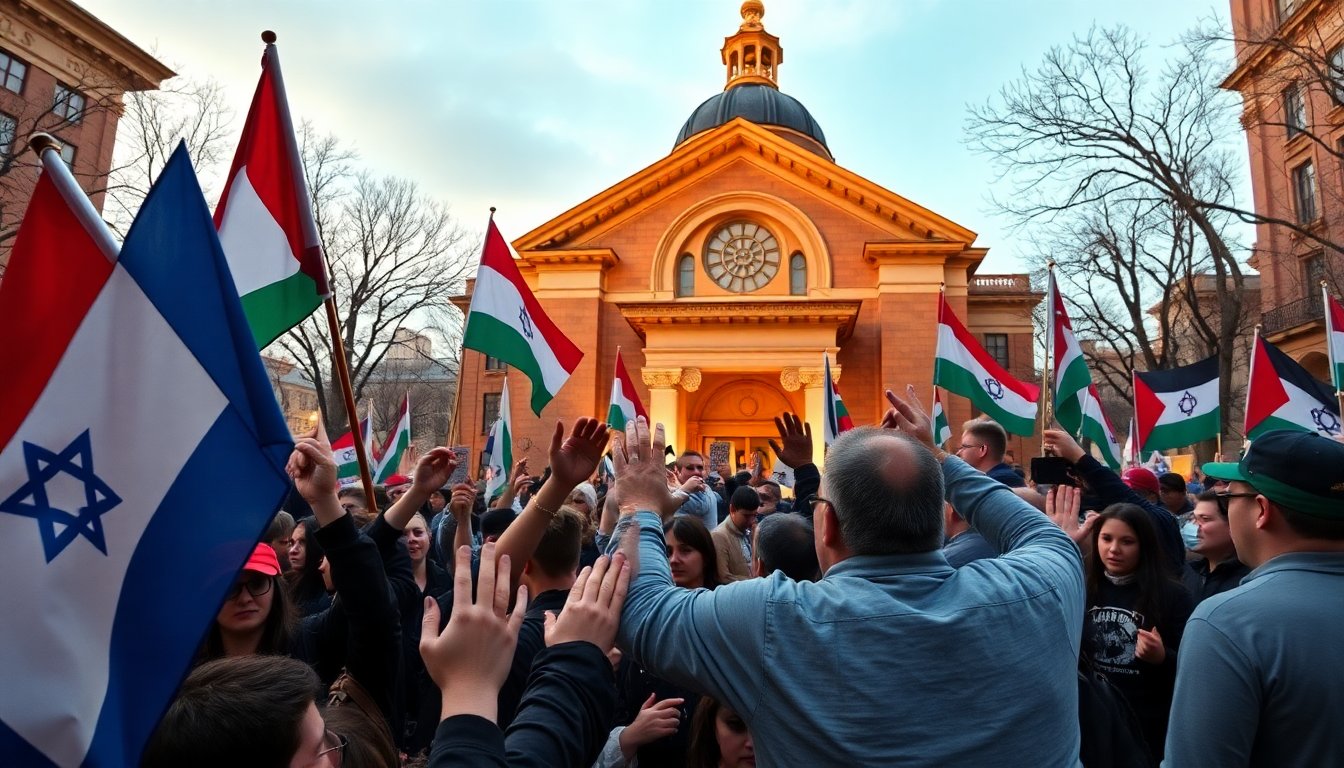Table of Contents
On a recent Wednesday evening, a significant protest erupted outside the Park East Synagogue in Manhattan. This demonstration, involving approximately 200 anti-Israel activists, has attracted attention due to its inflammatory slogans and hostile atmosphere. Attendees were present for a gathering organized by Nefesh B’nefesh, a group dedicated to Jewish immigration to Israel, while protesters chanted phrases widely considered antisemitic.
The gathering coincided with an event aimed at supporting Jewish immigration to Israel, prompting protests viewed by many as an affront to the Jewish community. The situation escalated as chants such as “globalize the intifada” filled the air, reflecting the deep-seated tensions surrounding the Israeli-Palestinian conflict.
The protest and its implications
Among the crowd, protest leaders urged participants to instill fear among the synagogue attendees. One leader was recorded stating, “We need to make them scared,” a sentiment echoed to emphasize the group’s intent. Such declarations raise crucial questions about the nature of protests and the boundaries of free expression in relation to hate speech.
Counter-protests emerge
In response to the anti-Israel demonstrations, a smaller group of Jewish supporters gathered to counteract the hostile environment. They shouted phrases like “You’re cowards” and condemned the protesters for targeting a place of worship. This counter-protest highlights the challenges Jewish communities face in maintaining safety and dignity amid rising tensions.
Despite the charged atmosphere, the New York Police Department was present to keep the two groups separated, utilizing metal barricades to prevent violence. Fortunately, no arrests were made during the event, underscoring the importance of maintaining order during such volatile gatherings.
The historical context of Park East Synagogue
Park East Synagogue, established in 1890, has a rich history, notably under the leadership of the venerable Senior Rabbi Arthur Schneier, who is now 95 years old. Rabbi Schneier, a Holocaust survivor, has devoted his life to fostering understanding and tolerance among diverse communities. His presence during such tumultuous times serves as a poignant reminder of the struggles Jewish communities have endured throughout history.
Notably, Nefesh B’nefesh, the organizing group of the event, plays a crucial role in facilitating Jewish immigration to Israel from North America. They do not direct immigrants towards controversial settlements, which adds complexity to the narrative surrounding their work and the protests they face.
Antisemitism in contemporary society
The recent protest raises significant concerns about the current climate of antisemitism in the United States. While many argue that a distinction exists between political criticism of Israel and outright antisemitism, the lines are often blurred in public demonstrations. Critics of the protest contend that this behavior crosses the boundary from principled opposition to Zionism into the realm of targeted harassment.
As tensions continue to rise, communities are left grappling with the implications of such protests. The need for dialogue, understanding, and respect for all faiths and cultures is more critical than ever. In a nation built on diversity, ensuring that places of worship remain sanctuaries free from intimidation is paramount for the well-being of all citizens.


